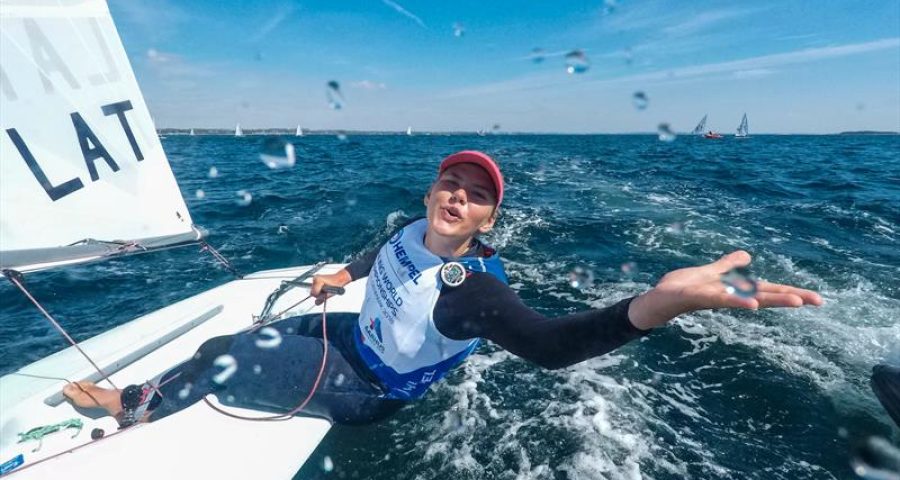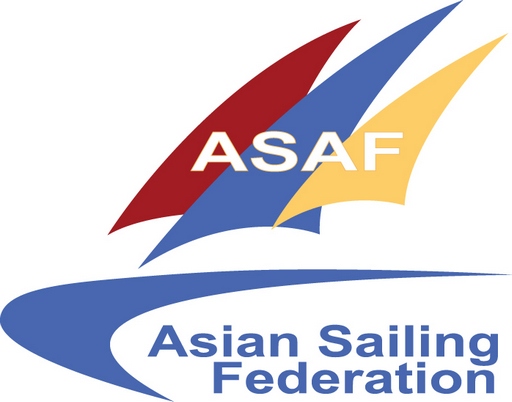
Sailing World Championships are often pitched as nations competing against each other, but the real tensions are often within the national teams as individuals begin to try and secure their Olympic selection.
The amount at stake for many of the sailors at the Hempel Sailing World Championships Aarhus 2018 will gradually be squeezed out each day and Friday brought into relief the pressures in the Finn fleet.
Two flying Dutchman – in separate Finn qualification fleets – had good days in stronger, more consistent days in Denmark’s beautiful Bay of Aarhus, and the subtext is their Olympic ambition.
P-J Postma, 36, made a late comeback just two months ago in a bid to represent the Netherlands at the Olympics in the Finn for the fourth time. That news was probably not received with great jubilation by the man in pole position, Nicholas Heiner, 29.
After a 14th place in tricky winds on Thursday, Postma was imperious in his first race, leading off the line and managing the field consummately until the end. He followed that with two third places to lead the overall standings.
Heiner is in sixth after a seventh, fifth and third place, but his sixth place on Thursday means he probably still has a discard up his sleeve.
“For me it’s Olympic Trials,” Postma said with a knowing smile. “I need to be the best Dutchman here. It’s quite a challenge.”
Each country has different selection criteria, the Netherland’s is quite rigid in the fleets where there is competition. If two of their sailors finish in the top 8 then the selection is deferred until next year. Sailing is often described as chess on water, but sometimes its chess off the water too. The timing of Postma’s comeback is essentially a defensive move to ensure selection remains open.
“I always like to share and do things together,” Postma, tenth in the 2016 Rio Olympics and fourth in London 2012 after a spectacular gamble failed to come off, said. “At the moment we’re friendly to each other but there is no sharing, so, it’s a fight. He’s been training for this and every day that’s coming he will give everything he’s got.”
For Heiner, the 2014 World Championships are still strong in the memory – he was the Laser world champion in Santander but did not get the selection for the 2016 Rio Olympics.
“Even if you become World Champion here it still doesn’t mean you’re going to the Games, like from Santander – I was World Champion but still on the back foot,” Heiner said. “It pushes everybody and in the classes where we’re strong that’s the high standard we need to deal with.”
As so often sailors from different countries are training together more than with their compatriots. “So far I’ve just been training with the kiwis in New Zealand and did some with the Brits in the beginning,” Heiner said. “PJ just came back and he’s got totally different things to work on than I do. We need to tick off national qualification and then the national selection, that’s between me and PJ. So, you just want to put down a great result.”
Friday was played out under a bright sunshine and the absence of clouds aided the earlier arrival of the south to south-easterly sea breeze that built from 8 to 12 knots with gusts of 16.
The huge Laser and Laser Radial fleets got underway and it was no surprise to see the Dutch Rio Olympic champion and three-time world champion Marit Bouwmeester near the top of the leaderboard. Although, even Bouwmeester did not have it own way, with her young compatriot, Maxime Jonker, winning the first race ahead of her. It underlined the strength in depth of the Netherlands programme.
The 165 Laser boats were split into three fleets. New Zealand Rio 2016 Olympic bronze medallist Sam Meech was peerless in his, winning both races. But there were few surprises and all the main contenders are lying in the top 10.
In the women’s 470, Hannah Mills, the Olympic champion in Rio and new crew Eilidh McIntyre – who know a thing or too about pressure from national team mates – put a difficult Thursday behind them by winning both their races.
The men’s 470 ran three races to catch up from Thursday and Swedish 2018 European Champions, Anton Dahlberg and Frederik Bergström were solid but bettered by Japan’s Kazuto Doi and Naoya Kimura. The surprise of the day was perhaps the struggle of Australia’s Mat Belcher and William Ryan, the silver medallists in Rio and Belcher being the gold medallist in London 2012.
Full results for each fleet can be found here.
by Matthew Pryor

